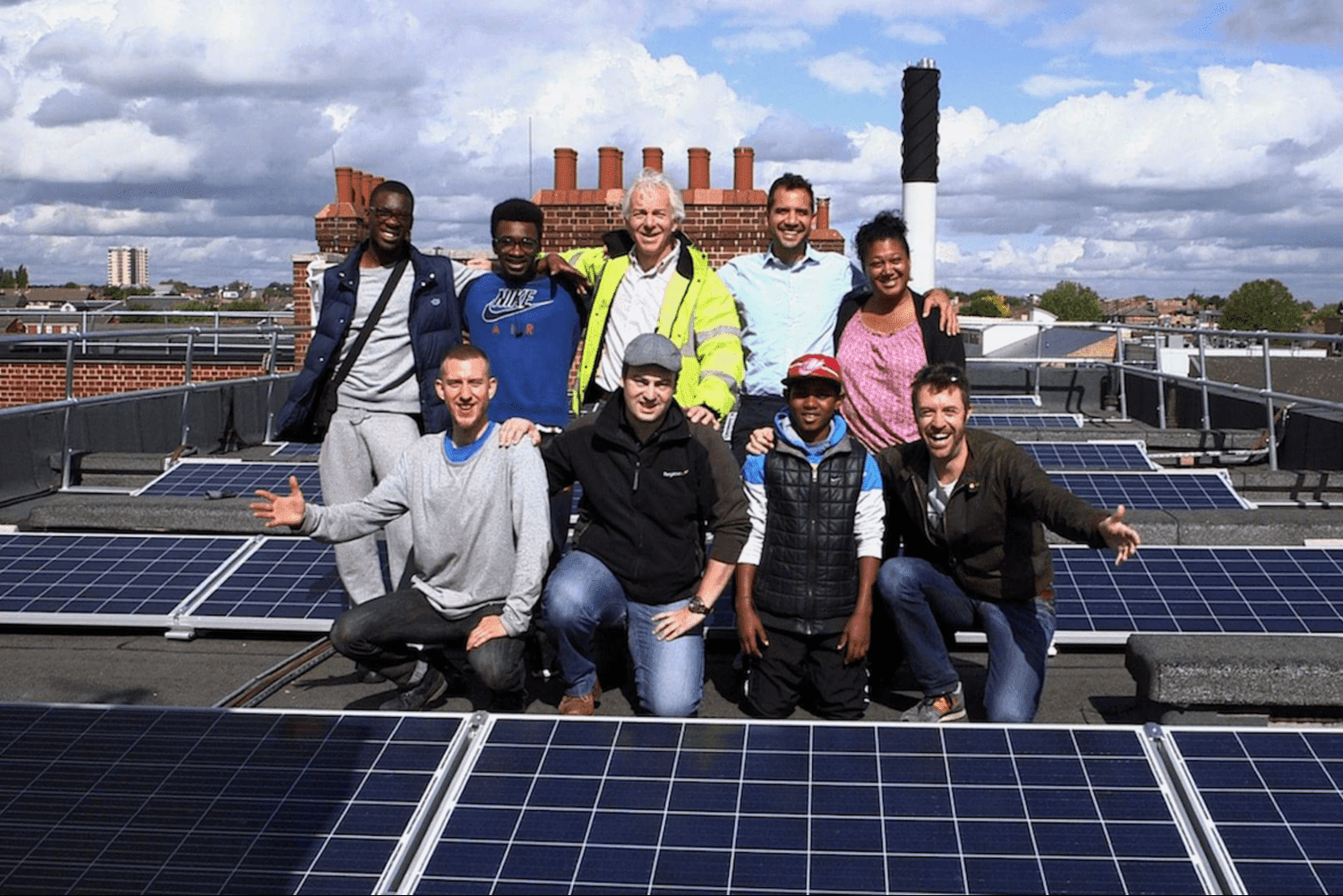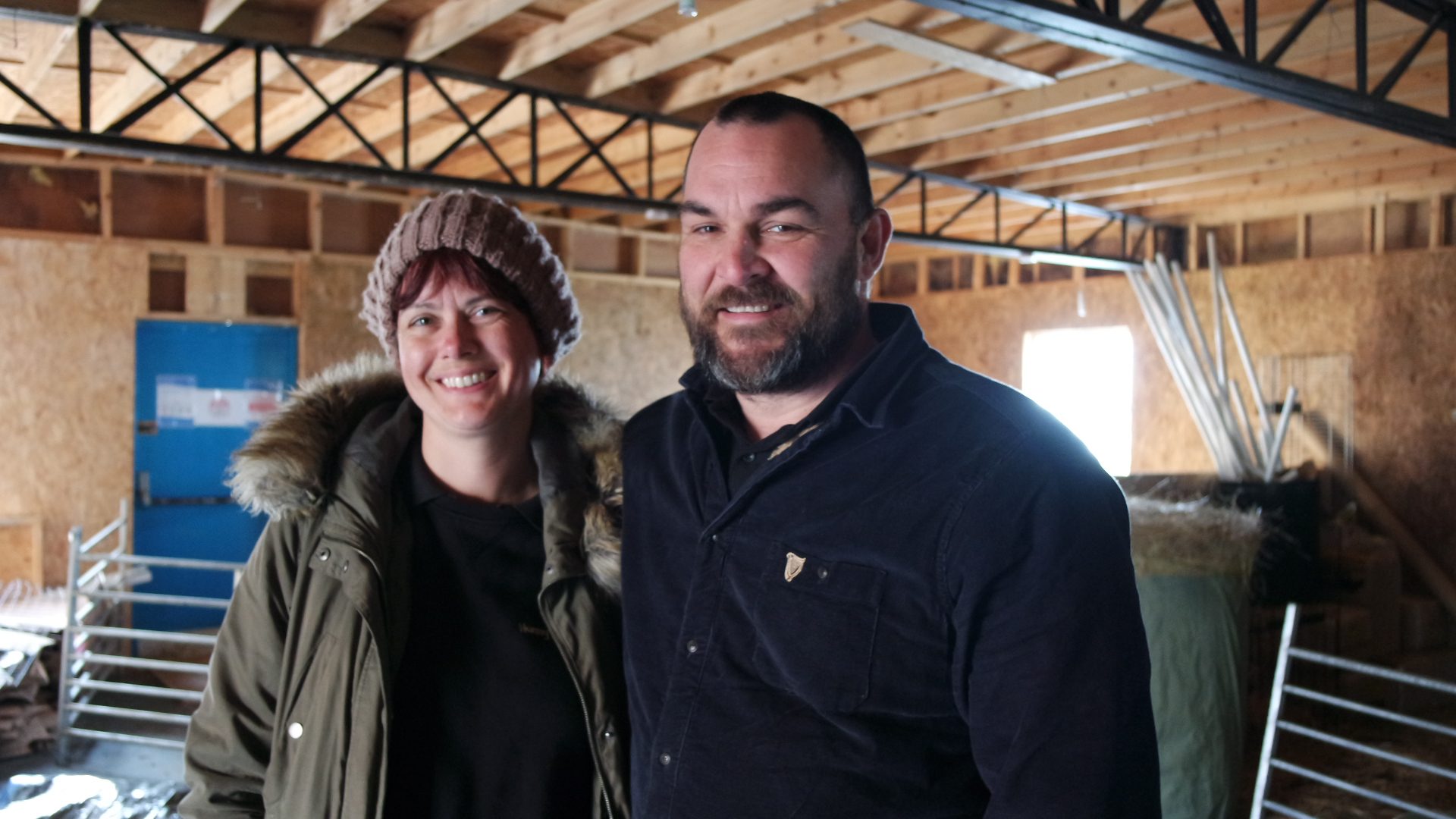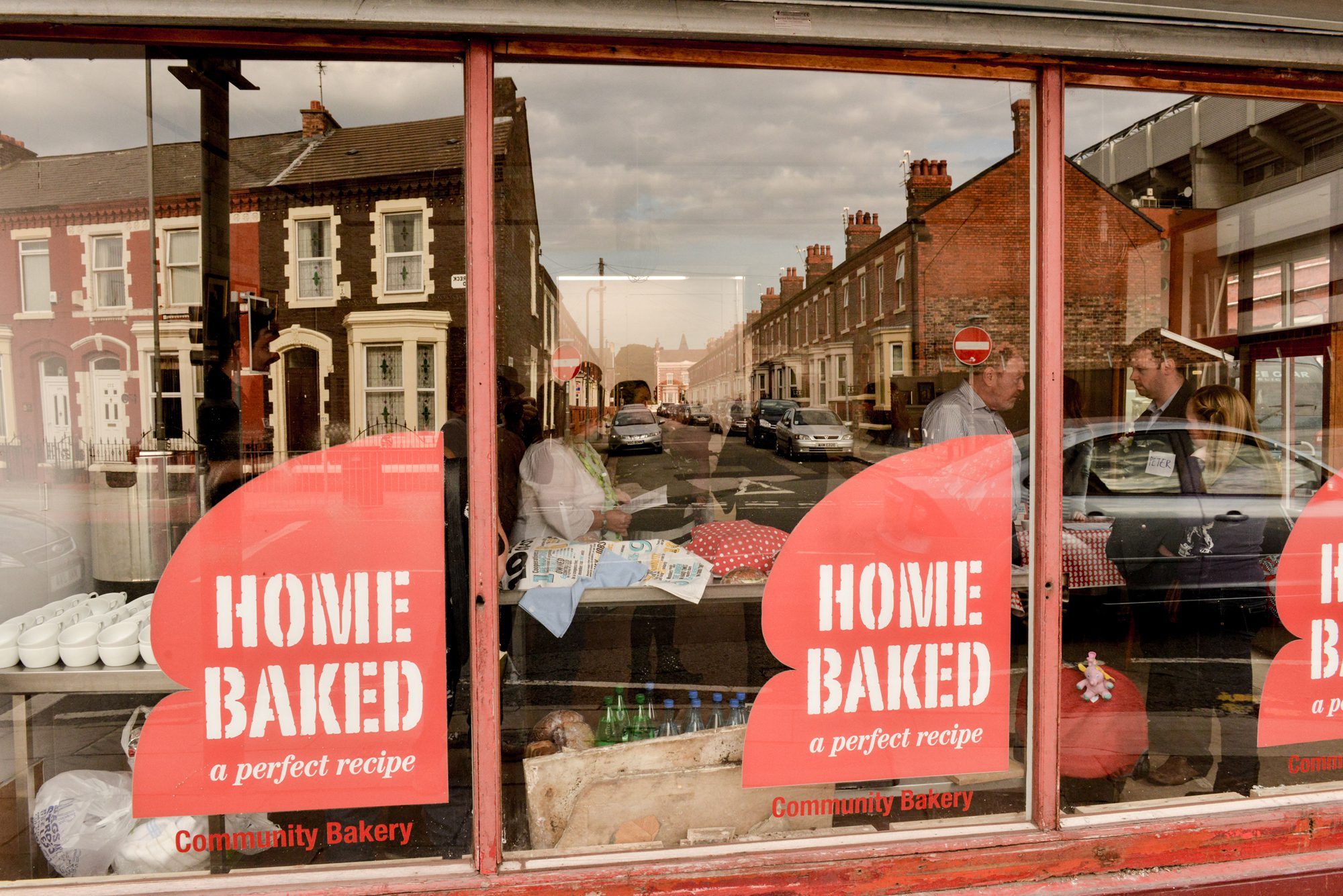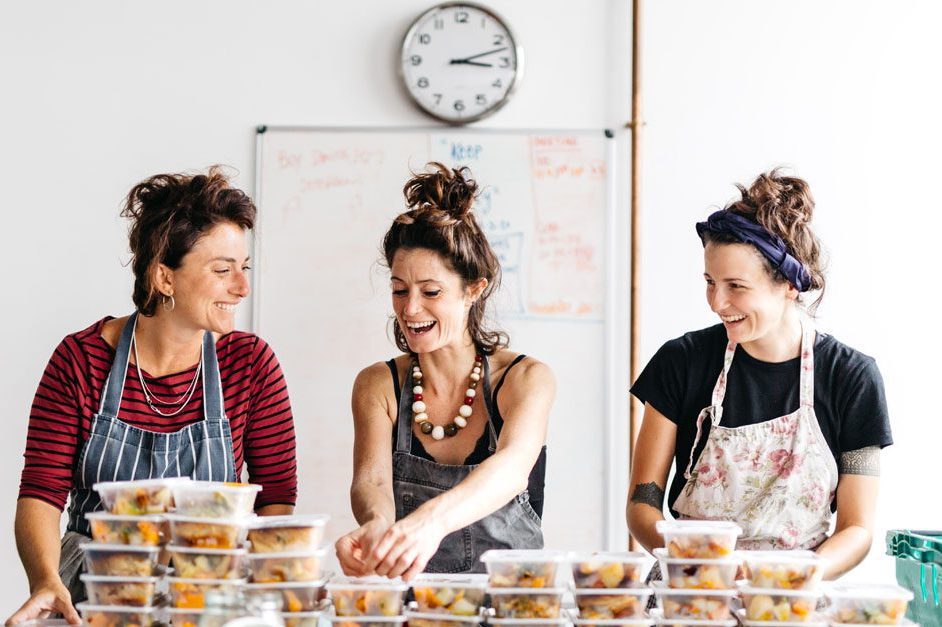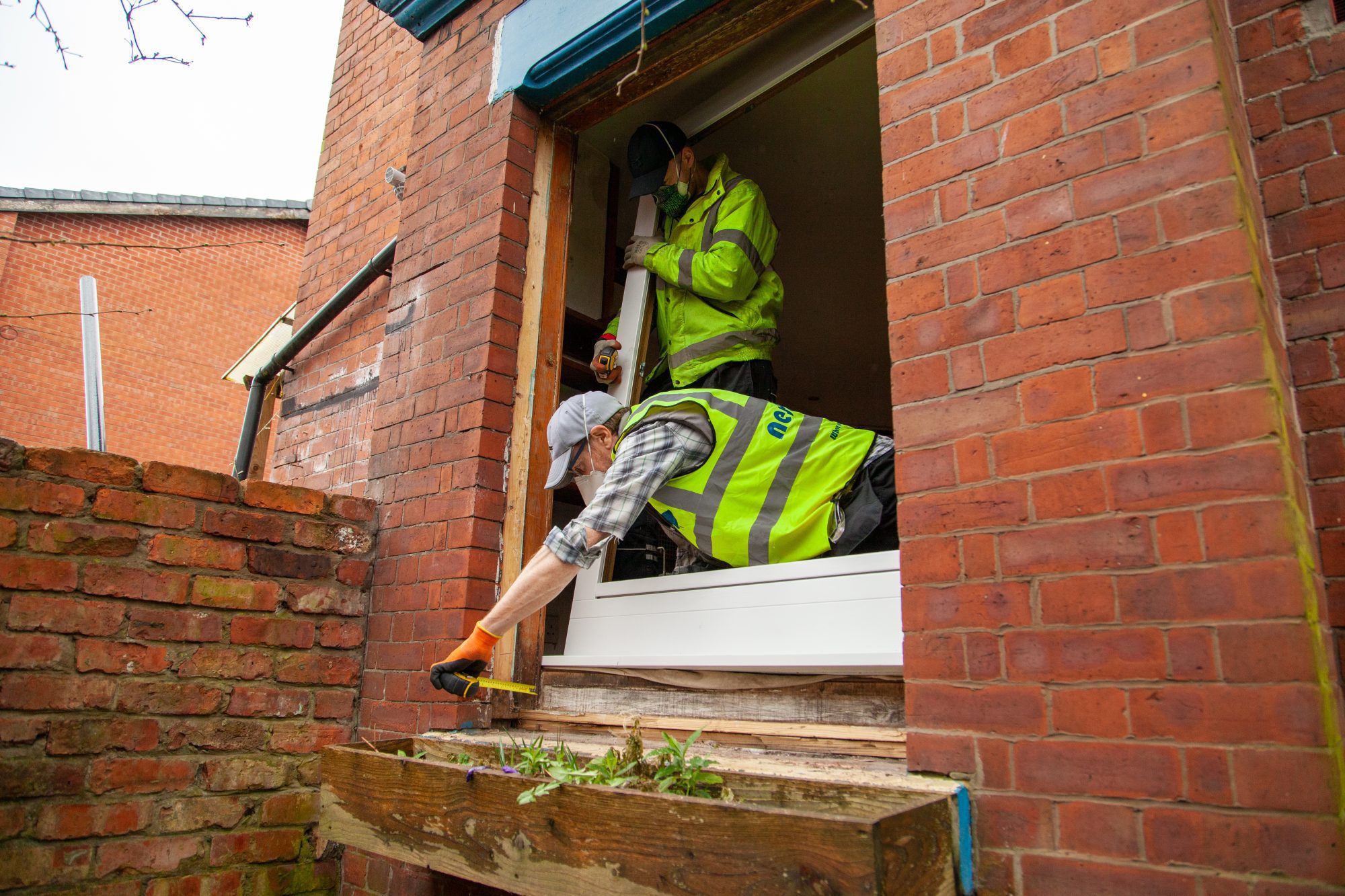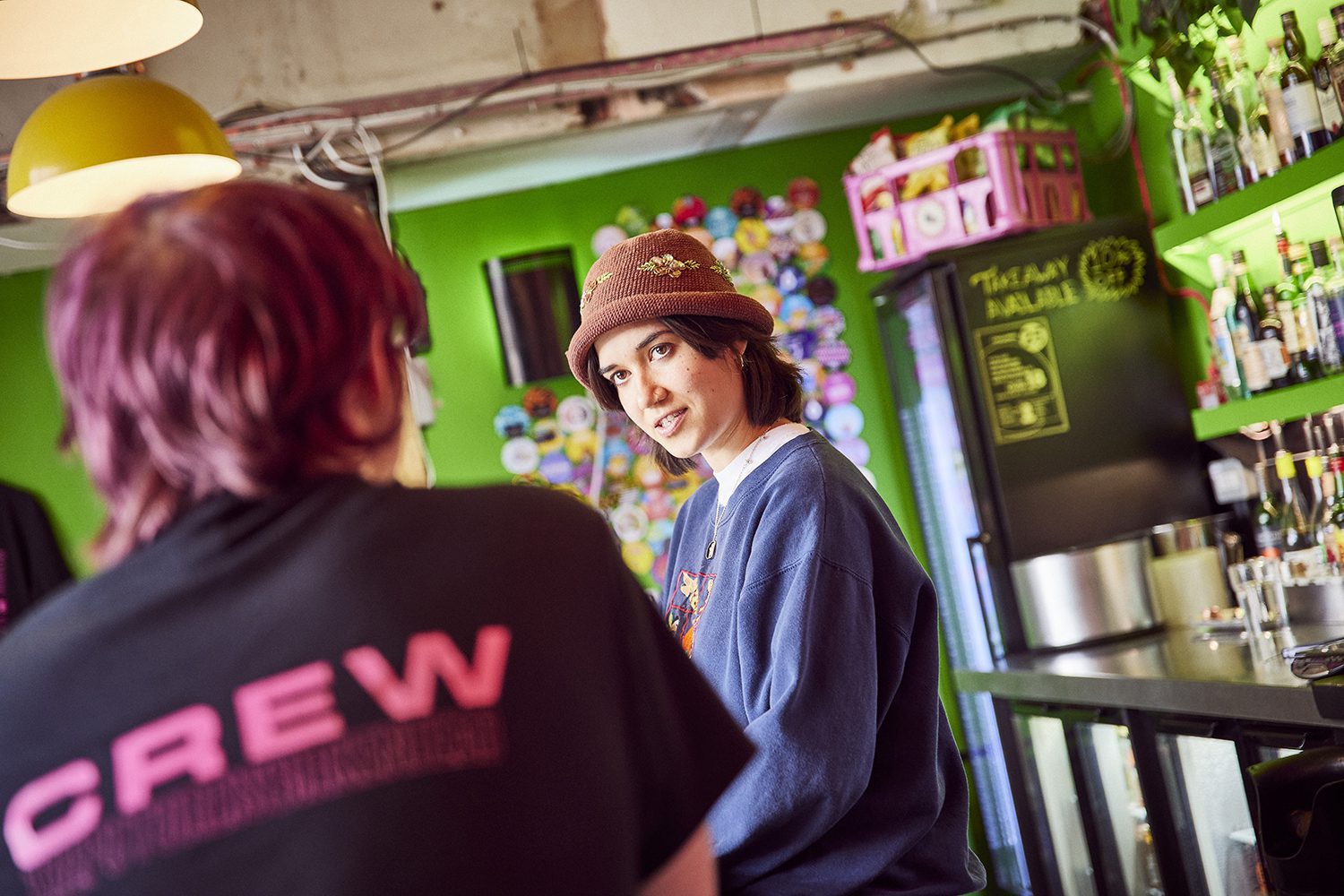In 2014 Leila Fortunato saw an advert for an event about a proposed solar panel project in her housing estate and went along. Then she went to another one. “I was hooked,” she says, and quickly went on to become a director of the project, along with several other residents.
With solar panels installed on the roof of the estate, the project became the first community-owned solar energy project in Hackney and the UK’s largest on social housing. It now sells back extra energy produced to the National Grid and the profits are put into a community fund, which is spent on local community projects, as well as donated to charities selected by the community.
Repowering London and Hackney Council developed this with the residents of Banister House front and centre of the process. Doors were knocked, meetings held, workshops arranged, energy surveys and audits carried out, and as a result 97% of residents surveyed supported the scheme.
There was also a key focus on including, and hiring, young people by providing a paid internship programme over 30 weeks, as well as paid work experience installing the panels. “The youth engagement was the biggest thing for me,” Fortunato says. “Them getting the chance to do door knocking and the internship and everything. It suddenly felt like they belonged and that they were being taken seriously and that their voices were being heard. I also noticed a drop in antisocial behaviour along with lots more community engagement.”
It had a significant impact on Fortunato personally. “It changed the way I saw things,” she says. “Before I felt quite disillusioned. There was a sense that nothing good is ever going to happen so why bother trying or making an effort to get your voice heard. But this was different. It was about empowering communities, not people coming in and telling you what you should do.”
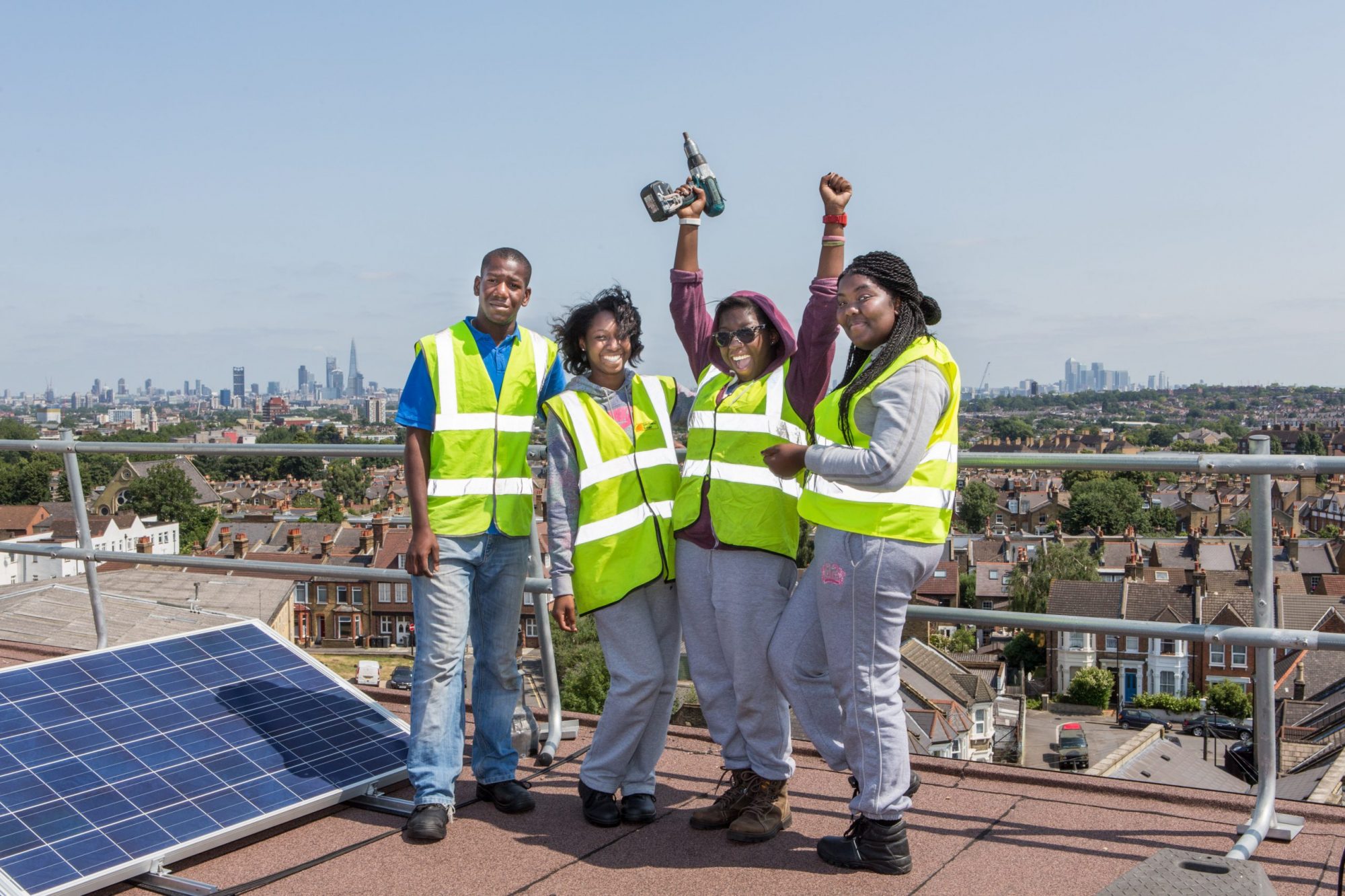
For Agamemnon Otero (CEO of Energy Garden, co-founder and ex-CEO of Repowering London) the project was rooted in utilising the skills and knowledge of the people on the estate. “It was about trying to create an instrument to support them, not only financially but to protect them against the notion that they don’t know better,” he says. “The idea was: we’re going to co-produce this to create something because you know how to do this better than we do.”
The skills the young people learned were key in both personal and career development. Alongside installing the panels, they gained experience in understanding the finance, IT, technical, legal, engagement and media elements of community energy projects; gained advice on CV writing and delivered presentations to the House of Commons and executives at Barclays.
Several interns went on to full-time paid employment in that sector, including Victoria Omobuwajo who became Secretary of Hackney Energy before becoming CEO of her own award-winning healthy snack company Sunmo (a Nigerian term for the sense of community and coming together to share food that she experienced in her mum’s kitchen in Banister House).
In 2017 Banister House once again found itself at the heart of another UK first in progressing green energy and tackling the climate emergency. A collaboration between Repowering London and Verv, as part of Ofgem’s regulatory Sandbox initiative, saw the solar power from Banister House traded to an adjacent tower in the UK’s first ever energy trade using blockchain technology.
On top of this, Fortunato, and other directors, consult and advise on other projects, plans are in place to set up a course in partnership with Energy Garden and during the pandemic a five-week internship program for young people in the community was delivered.
For Otero, it remains a milestone achievement. “Banister was my greatest achievement at Repowering,” he says. “All the directors lived on the estate so there was something profound in knowing we had everyone together working on this. From 10-year-old kids to 84 year olds, they were all working together making that change happen. Which to me is the point of these projects: intergenerational, nondenominational delivery of resilience.”
